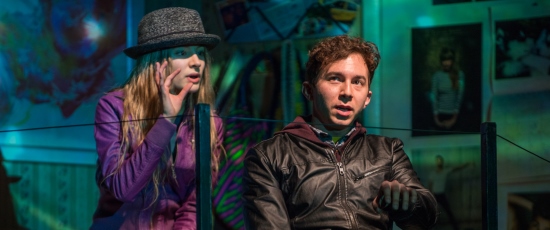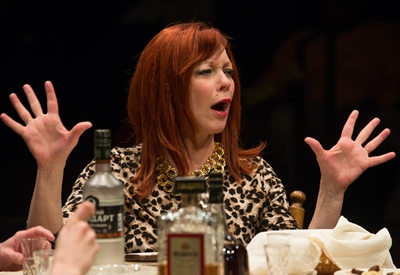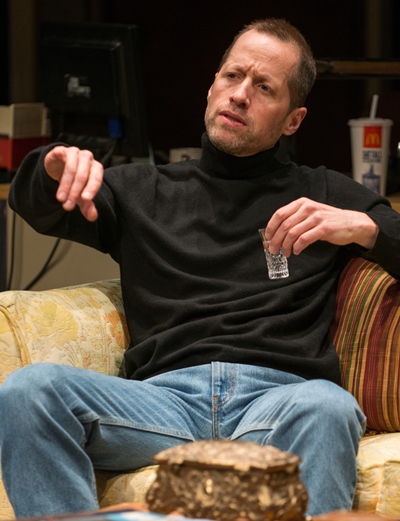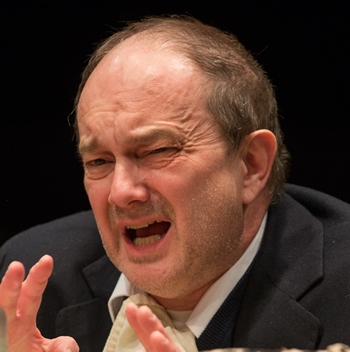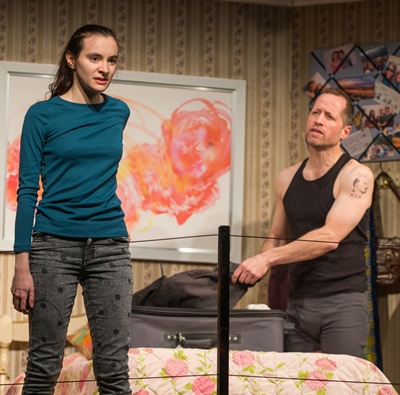A special FBI investigator and a neurotic sneak-thief cross paths when the world’s most prized violin becomes the centerpiece of intrigue.
Prologue
When
there is no hope for the future and the present is constant pain, then the past
will absorb the soul searching for good things. (Ancient Hindu proverb)
A
faint smile formed around the hollow cheeks of the bedridden man. Rain
continued to slash the windows. This sound was transformed into melodies.
Showers of ascending and descending notes flooded his consciousness. Crisp
images embedded in memory arrived in rapid succession. The hundreds of concerts
and the cities they were held in: women and the rooms he made love to them in.
The money—oh yes, the millions he earned and lost in four decades.
He
had jumped off the edge of the universe and changed the way the world would
listen to music: the artist as prophet. With his singular imagination, he was
shaping the future. The flow of sounds and textures would follow in his wake.
In
his possession was a well guarded ritual passed down through the centuries by a
chosen few: the artists, philosophers, writers, mathematicians, musicians and
speculative scientists. The power of this manuscript, properly interpreted, had
increased his musical vision. This document and scores similar to it were at
the foundation of cultural, political and social change throughout the ages.
Secret brotherhoods with one credo: to know, to dare, to be silent.
After
re-inventing violin technique and performing with a personal passion beyond
belief, audiences became suspicious. He appeared to be from another world. Many
people were convinced that he was in league with the Devil. More than a few
believed him to be the Devil. The image he had created for himself always
caused him regret. It was impossible for anyone to understand the turmoil
experienced in the process of making the invisible, audible.
Today
his mind was at war with his body. He knew he was dying. In the darkness of his
Mediterranean apartment a vampire was sucking the blood from his veins. Long,
pointed finger nails scraping the marrow of his bones. Surely, God must be
laughing.
Crawling
out of bed with only the strength of his arms to aid him, he grabbed the knife
from the table and crouched on the floor. His breathing was labored, but for
the sake of his son he must finish what he’d begun three days ago. When
Achilles returned with the doctor he would tell him the secret.
He
removed the final plank of the flooring and inserted the violin case with the
real 1742 Guarneri into the hiding spot, the instrument fashioned by the
erratic genius of Cremona which had been his life-long companion: the voice
which soared among the clouds.
Tucked
behind the lining inside the case was the document he valued most dearly,
translated from the original Latin into Italian and English: the magic formula
of his success.
The
ailing legend replaced the planks, making sure they looked untouched.
The
copy of the Devil’s violin he purchased in Paris a decade ago was on the bed.
Last week, he had promised the real Guarneri to the mayor of Genoa, the city of
his birth, for their museum. They would always believe the copy to be the
original. His smile returned. The prophet knew that as time passed, the value
of the original violin would increase a thousand fold. This unique instrument
must be kept in the family.
Niccolo
Paganini welcomed the new healer with little enthusiasm. He told his son that
they would need to talk after the examination. There was no time for last
words. One of the most mysterious personalities that ever lived died within
minutes of the doctor’s arrival.
The
next day, Achilles emptied his father’s apartment and removed the body unaware
of the treasure buried beneath the floor.
1
Emily
Parker loved the older neighborhoods of Los Angeles. Tonight she was in one of
her favorite 1920’s mansions. She held up her half-empty martini studying the
image of two inverted triangles formed by the glass and its contents; an
ancient alchemical symbol for the earth. The people around her enjoying
Hollywood film producer Max Pendleton’s party seemed to disappear. Her mind was
elsewhere. The alcohol made her memory fuzzy around the edges yet the drug also
allowed her to focus on the past. Not the decades that most people would review,
but the deep past. Lifetimes of awareness experienced over centuries. Where
would she be without Jonathan? He had rescued her during a time of political
unrest when the Church and the populace were at war.
A
voice came from over her shoulder. “Mrs. Parker?” Emily turned to discover a
young man smiling at her. “I just had to meet the wife of Jonathan Parker.”
She
shifted slightly. “How do you know my husband?”
He
pulled up a chair. “I’ve just started to work for Max. I’ve seen Mr. Parker
before but only met him tonight. Wow, he’s something else.”
Emily
stared into his face. “What’s your name?”
He
finished a sip of his Dewar’s. “Roscoe, Roscoe Barnes.”
”Well
Roscoe, I agree with you, but why do you think so?”
Roscoe
straightened his back. “We had a meeting a few minutes ago upstairs with our
new Saudi clients. Your husband spoke Arabic. That blew my mind. We’re working
on a new investment deal. The sheiks want a piece of Hollywood.“
Emily
grabbed another martini off a passing tray. “Well young man, there are a lot of
bilingual people floating around this village. It’s not that big a deal.”
Roscoe
grinned. “Granted, but not many of them are investment geniuses who speak
Arabic and play the violin like a god.”
“Where
did a violin come from?” Emily spilled a few drops of her drink.
Roscoe
pretended not to notice. “You don’t know about Max’s collection? I didn’t
either until tonight, but upstairs behind a sliding panel are half a dozen old
fiddles. Evidently they’re worth a small fortune. Max was selling one and Jonathan
played it. Incredible.”
Emily
asked Roscoe for a cigarette. He didn’t smoke but said he would find her one.
The martinis were taking effect. She began to laugh thinking about ‘fat’ Max
with a violin. When Roscoe returned with a pack and a gold trimmed ash tray, he
lit one for Emily and sat back down.
“There’s
one thing I just don’t understand,” Roscoe said with an exaggerated smile, “How
in the hell does one man learn so much in one lifetime?”
Emily
took a long drag of her cigarette. “Indeed, that is a curious thought worth
examining.”
She
stared off into space and Roscoe, realizing she was finished with their
conversation, stood up and moved back into the crowd of party makers.
2
The
boyish thief threw on his Ray-Bans as he stepped out into the summer sun along
Santa Monica Boulevard. His meeting with Max was a tough one. The heists were
getting more complex.
“People
want what they want and don’t give a shit how they get it.” Gustav Edward Happy
lit up a Camel and headed for his car. “Yep, and that’s why I have a job.”
Max
paid well and Gus knew he’d be earning every penny on this new assignment. The
job was in Europe and he’d never been farther than Las Vegas. “What the hell,”
he thought, “the Dodgers are on a losing streak—no reason to hang around.”
The
flight from LAX landed in Milan Monday morning. The sixty kilometers to Parma
was travelled by train. Gus had experienced motion sickness since he was a kid.
As the tundra of the Tuscan country side flew by two beers soothed his parched
throat and kept him from puking.
It
was the middle of August and Parma was empty. The sun beat down on the ancient
cobblestones. There were no hordes of tourists.
His
first day in Italy found Gus Happy alone in a small café waiting for his
contact, someone named Mario. They were late. He fondled his espresso cup
nervously while staring at the blue glow of his cell phone. A dry wind was
blowing along the street reminding him of the Santa Anna’s in L. A.
What
the fuck had he gotten himself into this time? The feeling that someone had
followed him from the train to his hotel yesterday was making him nervous. Two
months ago he celebrated his fortieth birthday in Vegas. That night he’d felt
on top of the world. Now it seemed that he was staring up from a dark ravine.
He
ate but felt empty inside. Sitting on the terrace of the bistro with his back
against the wall, he chain smoked. He checked his watch. He’d give it another
fifteen minutes and then head back to the hotel. It was time to be cool. He
knew his imagination could play tricks on him.
He
was born into a family of thieves. The night he began his career, Uncle Eddy
stopped by to take him for a drive. They drove around in a 1983 Lincoln town
car. It was black, inside and out. The seats smelled like perfume. After a
while Eddy veered down an alleyway in Tarzana and brought the car to a halt. He
turned to Gus. “You know son, you’ve always been my favorite nephew. You’ve got
brains.” Between glances at his nephew, Eddy’s eyes were darting around
nervously. “Tell me, did you ever ask yourself what your father and I and your
other uncle in Seattle do for a living?”
Before
Gus could answer Eddy jerked open the driver’s door and ran down the alleyway
like an athlete. Gus stared at his uncle and another man as they disappeared
around the corner. Total silence. His heart pounded like a drum. Was he
imagining all of this…was it a dream? Would he wake up soon?
Gus
jumped as he heard the sound of two gun shots crack in the air. Within a few
seconds Uncle Eddy ambled back to the car sporting his big-toothed smile.
Settling back in his seat he started the engine and handed Gus a Franklin.
“Thanks for keeping me company. If you’re interested there’s more where this
came from.”
That
had been the beginning. The past twenty three years rolled by in a blur.
Nothing was distinguishable. His mind had wandered but he knew it was time to
concentrate.
Thieves
and poets have one quality in common: the trained faculty of observation. Gus
could sense someone bearing down on him. His eyes scanned the street. To his
left, two older women were walking, arm in arm, their heads bent in close to
hear one another. On his right a beautiful woman was staring at him, smiling as
if she were coming to greet a lover. She stopped in front of Gus and extended her
right hand.
“You
must be Gus,” she said with an Italian accent. “I’m Maria, sorry to be a little
late.” Gus stumbled to his feet. He recognized her as the person who followed
him from the train station. He moved around to offer her a chair. “Sorry, I was
waiting for someone called Mario.” He held out the note that the desk clerk had
given him that morning.
“Oh
Signor, in Italian the letter ‘a’ sometimes looks like an ‘o’. Maria patted his
cheek. “It is my fault. I should have been on time.” She sat down crossing her
olive colored legs. Her dress was simple, low cut, fitting her slender body
without clinging to it. A crowned straw hat and huge oval sunglasses completed
her statement. Gus thought of Sofia Loren.
He
began to mentally size up his options before speaking. Maria ordered two more
espressos. Due to his fatigue and anxiety Gus was spaced out. The last thing he
had expected from Max was to hook him up with a female. “Well Maria, what’s our
next move?”
“You
don’t know?” Maria giggled as she spoke. Gus’s cell phone went off. The sound
was deafening in the empty plaza. Maria smiled at Gus. “You’d better answer it,
it’s probably Max.”
3
After
a brief update with Gus, Max confirmed a few details with Maria and then locked
away his untraceable cell phone. The tension in Gus’s voice made him chuckle.
Max felt confident about the casting of this odd couple. A man and a woman
would be less conspicuous in the process of acquiring such a treasure. The
screenplay was flawless. The actors were perfect for the roles.
Max
swiveled in his chair to look at the Hollywood hills. Soon, he would be the
owner of one of the rarest works of art on the planet and no one would know
until it was too late to do anything about it. The most important violin in
existence would soon be his. He would need to tell Jonathan about his latest
escapade. Max needed to keep his right-hand man up to date. If something did go
wrong, Jonathan was the ideal problem solver whose insights were invaluable.
He
lit a cigar. Producer Max Pendleton arrived in Los Angeles from Chicago thirty
two years ago with sixty six bucks in his pocket and an ailing 1977 Oldsmobile
‘88’. He came with one idea in mind: to take over the film industry. He had
absolutely no knowledge of the cinema other than he liked to go to the movies.
Max was twenty four years old and completely full of himself.
Within
days of being in Hollywood, he had bluffed his way onto the Paramount lot,
convincing the security guard that he’d been mugged on Sunset Boulevard on his
way to a meeting with the producers of “Happy Days”. Max was a born schmoozer.
When
he was eighteen years old he lied about his age to get a job as the manager of
a small branch of the Ringling Brothers and Barnum and Bailey circus. The troop
would be touring the mid west. Even in his teens, his burly appearance and
pock-marked complexion got him into the meanest bars on the south side of
Chicago. In his six months as a circus boss, there wasn’t any trick in the book
that he hadn’t dealt with or dealt out. Max could sell Eskimos sun tan lotion.
He
rotated his chair to face the small Pissarro landscape on the wall behind his
desk. Standing, he moved in for a finer view of the details. If it hadn’t been
for Jonathan Parker’s contact in Europe, he wouldn’t be enjoying this up close
and personal relationship with a masterpiece from the Impressionist era. It
hadn’t come from an auction house or been purchased from a private collection.
It just arrived one day at the garden gate in a perfectly ordinary box
hand-delivered by the postman.
Max
tidied up his desktop then went downstairs to prepare for his wife’s birthday
party. He hoped that none of the staff had revealed the big surprise for the
evening. It had taken a lot of pull to get Sting to pass by and serenade her
with a few of her favorite songs. The Cartier necklace flown in from the shop
at the Hotel de Paris in Monaco should also put a smile on her face.
4
Maria
talked to Max with her hand cupped over the mouthpiece. Gus watched the sun fading
around the piazza. A shadow fell across the terrace. Their waiter was lighting
candles at each table. Maria snapped the phone shut and the sound brought Gus
back to earth. “It’s time for a walk.” She gathered up her purse and signaled
for the check.
In
the few minutes he’d known her, Gus realized she was used to calling the shots.
He wasn’t sure why Max had put them together. He decided to let it play itself
out and see where it went.
Maria
headed toward the basilica. Gus tagged along. After a few quick glimpses at Gus
she spoke. “Tell me Mr. Gus, what do you know about the world of violins and
their history?”
Gus
lit a cigarette. “My grandfather had one, but I never heard him play it.”
“Oh,
you come from a musical family?” Maria responded enthusiastically. Gus snapped.
He grabbed Maria by the arm and guided here into a dark alley. “Look,” he said
with his eyes on fire, “I’m a con man, a pretty damn good thief and I’m here in
the middle of Italy with someone I know nothing about getting ready to knock over
a museum for a violin… a violin for Christ’s sake? I don’t fucking believe it.
I’ve got half a mind the chuck the whole thing and get the hell out of here
pronto.”
Maria
made no attempt to release her arm from his grip. She stood smiling at his
tirade. “My goodness, you have more of a temper than the Italians…yes?” Gus
removed his hand. “I tell you Signor Gus Happy, it is as if you were going to
steal a new Porsche but had never seen one. This job could set us both up for
life but without the proper background on the object in question we will fail.
It’s as simple as that. Max hired me to be with you, to fill in the blanks but
I am not working with little boys who can’t take the pressure. So right now,
you decide, in or out?”
Gus
felt a monster headache coming on. “Okay, okay,” holding his forehead, “go
ahead, educate me. But I warn you, I’m not here to waste time. Max hired me to
do a job, nothing more. He flicked his cigarette into a fountain. “Where do we
start?”
Maria
let out a maniacal giggle. “We start at my apartment where I fix us dinner. You
are tired and will need much strength for our adventure.”
“Our
adventure” Gus thought, “What the hell is this, Harry Potter?” Right now he
needed to eat and sleep. Maybe the morning would bring the picture into focus.
Besides, he was too tired to argue with Sofia Loren’s little sister.
Winding
through the narrow streets on the other side of Strada Della Reppublica in the
heart of Parma, Gus barely noticed the trendy boutiques and coffee houses dimly
lit with amber or yellow lamps. Everything just swirled above and below him as
if he were trying to claw his way home after an all night bender.
Maria
jostled her purse for a set of keys and turned into a small courtyard overgrown
with beds of flowers and guarded by an ancient olive tree.
She
sprinted into the darkness to switch on the lights. Gus looked around. It felt
like a smaller version of Max’s mansion in Hollywood. Educated taste permeated
every nook and cranny reeking of an indefatigable check book.
Maria
threw together a pasta salad accompanied by a bottle of Chianti. Gus settled
himself down on an over-sized puffy divan which begged him to fall asleep.
Before he knew it they’d gone through the entire bottle of wine. Maria sat at
his side with her legs in lotus position. Her empty wine glass dangled between
thumb and first finger. She observed Gus for a few moments then got up and
returned with a blanket and pillow. “You are too tired to work tonight. Take
what I say with you to your dreams.” Maria bent down to whisper in his ear.
“The piece of history we are about to steal is like no other on this planet.
Although there are others like it, this one is the most coveted of them all
because it belonged to the Devil.”
Gus
heard her last words as if he were at the bottom of a well. He felt the cold
pillow under his head as he sprawled out. Soon he was off the radar.
5
Gus
awoke to the sound of birds singing. He had no idea where he was. He willed his
eyes to open one at a time. His left eye winced at the sudden profusion of
sunlight. When he opened his right lid both eyes focused on a pair of sheer
draperies fluttering in the breeze. A chill ran over him. He pulled the
comforter up around his neck. A slow exaggerated yawn escaped as he pulled
himself up. Through the curtains he could see Maria seated at a small table in
an overgrown garden. Things looked different after a full night of sleep. Maria
appeared like a goddess in her white robe, the sunlight dancing upon her face.
She was calmly reading a magazine and sipping her coffee. Caffeine. Gus needed
to ward off the numbness.
“Good
morning!” He yelled out through a smoker’s cough. With a quick snap of her
head, Maria smiled and waved.
“Buon
giorno” she returned, gracefully stepping in from the garden. She smiled as she
scurried past him. “Stay where you are. I will bring coffee and pastries.” Gus
fumbled for his cigarettes, trying to shake off the coma. Maria reappeared with
a tray. “You look a mess.” She poured him a cup.
Gus
took it and grabbed at the pastries. “What the hell time is it?”
She
could barely understand him with his mouth full. “It is almost noon. I let you
sleep in.”
Gus
drained his second cup.
Maria
was in motion. “Listen, I have to dress and go shopping. We have much to do
today and will not be tourists. You will find everything you need upstairs in
the bathroom, first door on your right. I’ll be back within the hour and we’ll
have a light lunch and begin your education.” She let out another maniacal
giggle as she went upstairs to change. Gus thought her to be the happiest woman
on the face of the planet or nuts; probably both.
After
she left, he decided to stroll through the apartment room by room,
investigating his new partner.
On
the dresser in her bedroom were various framed photos of what were probably
family and friends. The antique bureau was full of carefully folded lingerie
and underclothes. Sexy designs which were classy but not over the top. The
clothes in her closet were organized from left to right by function and color.
Gus searched through all the boxes on the shelves but didn’t find a weapon or
any other life-threatening device. There was a spare bedroom, sparsely
furnished, which didn’t seem lived in.
After
taking his shower he examined the medicine cabinet. It contained cold remedies
and vitamins but no prescription drugs. The door was secured on a large closet
in the hallway between the two rooms. He thought about picking the lock but
left it alone.
Moving
downstairs he headed for the kitchen. It was very modern compared to the rest
of her living space. Marble counter tops, Italian appliances along with
polished copper skillets which hung over the stove. The area was too neat, too
perfect to be used very much. Inside the refrigerator were a tray of butter and
a carton of past-use milk. She didn’t appear to be a home-body.
Returning
to the front room where he spent the night, he crossed over to a small office.
Inside was a huge table mounted with a computer and tower. An orange plastic
box full of hard-drive discs sat next to the monitor which were numbered but
not labeled. Behind the desk was a book case with subjects about art history,
antiques, biographies and travel. On the top shelf rested seven books bound in
black leather, untitled. Gus took one down. Scattered throughout the pages were
plates of angels playing music surrounded by strange symbols and Zodiac signs.
Gus returned the book carefully and stared off into space. “What makes this
woman tick? Is she some kind of heavy intellectual or just out of her mind?”







